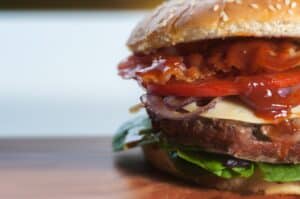A growing number of kitchen and restaurant retailers are looking for product descriptions and web copy these days, but it takes more than a creative pen to land cooking-related writing jobs. Food-industry writers have to be able to write copy that appeals to both professionals and home cooks, which means using the right terminology and appealing to all the senses. Still, you don’t have to be a trained chef to land these gigs as a freelance writer.
Do the Right Research
You can make up for a lack of professional knowledge with the right research. Avoid user-generated content sites or mom-and-pop blogs. While some blogs may provide great facts about cooking, kitchen equipment, or supplies, if you aren’t well-versed enough to recognize incorrect facts, it’s best to stick with established experts. When writing about products, start with the manufacturer’s page. Source nutrition content from authoritative .gov and .org sites; for cooking tips, mine the pages of professional chefs.
No matter your level of comfort in the kitchen, check your facts, definitions, and spellings before submitting cooking industry work. Brands can be tricky to spell or capitalize, and it’s easy to mix up equipment such as saute pans and skillets when writing.
Keep It Simple When Possible
When possible, keep product descriptions simple. Combine features and benefits with common uses in the kitchen. You can throw in the occasional unique use or professional terminology, but make triple sure you know exactly what you’re talking about. Nothing spooks a kitchenware client like a well-meaning, but incorrect, product description or article.
When writing articles on cooking, maintaining a kitchen, or selecting the right tools, details matter. Often, a smaller scope lets you provide more helpful and valuable content. An article on selecting the right paring knife — or tips for using a paring knife — may be more helpful than a general run-down of kitchen cutlery.
Use the Brand’s Voice, or Your Own
When selecting voice, either opt for the client’s voice or your own. When writing in the cooking industry, it can be easy to inadvertently adopt celebrity voices, such as those of Rachael Ray or Guy Fieri. That’s fine if you’re describing products from a celebrity chef’s line, but in other writing, avoid buzz words and styles regularly employed by someone else. Talking about how a Panini pan and some EVOO help you turn out yummo sammies is appropriate if the Panini pan is in the Rachael Ray line, but may not be appropriate when discussing products from All-Clad or Calphalon.







